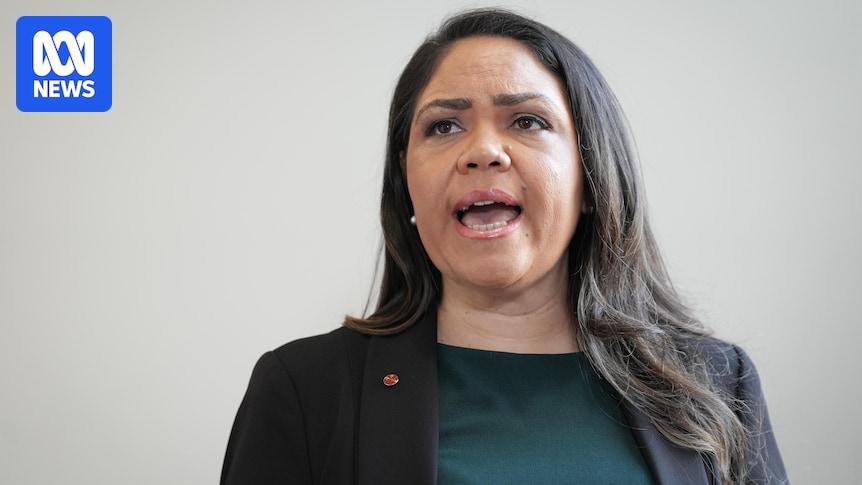
The Liberal Party is grappling with internal despair as it seeks to mend its reputation within multicultural communities following inflammatory remarks by Jacinta Nampijinpa Price, a new member of the party room. Price’s comments about Indian migrants have exacerbated an already challenging task of rebuilding trust and support among diverse electorates.
The controversy has sparked broader concerns within the party about its approach to multicultural Australia. According to one Liberal MP, there is a faction within the party that advocates for emulating One Nation’s strategies, a move that could further alienate multicultural voters and drive the party “off the cliff.”
Demography and Political Strategy
The demographic landscape of Australia is shifting, and the Liberal Party’s recent controversies underscore the importance of engaging with multicultural communities. The Labor Party has seized the opportunity to portray the Liberals as hostile to the Indian community, a narrative that could have lasting implications for the Coalition’s electoral prospects.
Liberal Senator Dave Sharma, himself of Indian heritage, has publicly expressed regret over Price’s comments, emphasizing that they do not reflect the party’s views. Other Liberals have also distanced themselves from Price’s remarks, striving to convey a message of change and inclusivity.
Damage Control and Internal Disputes
The fallout from Price’s comments has prompted swift action from Coalition MPs, who are in damage control mode. Price’s assertion that the federal government is favoring migrants from certain countries to secure votes, specifically naming the Indian community, has been met with backlash.
Price has since disputed media reports about the internal party response to her comments, claiming that Alex Hawke, the manager of opposition business, berated her staff before they spoke. “If people want to talk about a so-called ‘woman problem’ in the Liberal Party, then it’s this: we don’t stand up for women when they are mistreated by our own colleagues,” Price stated.
“Of course, I regret not being clearer in my comments on the ABC last Wednesday. I know that many Australians of Indian ancestry — and Indian migrants living in Australia — are distressed.”
Concerns Among Liberals
Opposition Leader Sussan Ley has been proactive in addressing the situation, reaching out to the Indian diaspora with video messages and engaging with Chinese communities on platforms like WeChat. This outreach follows Victorian senator Jane Hume’s controversial remarks about “Chinese spies,” which stirred unease just before election day.
While Ley’s efforts aim to reassure these communities, there is anxiety within the party about the potential backlash from their criticism of former Victorian premier Dan Andrews’ participation in a military parade in Beijing. The perception of being excessively anti-China could harm their standing with Chinese voters.
The Liberals’ internal reaction to Price’s comments has fueled concerns that the party is being perceived as anti-immigration across various marginalized migrant groups. Despite asserting support for a non-discriminatory migration program, the party’s focus on the volume of migration rather than its diversity remains contentious.
Corrective Measures and Future Challenges
In an effort to mitigate the damage, Ley appeared on Insiders to clarify that Price’s comments were incorrect and “would not be repeated,” emphasizing the party’s appreciation for the contributions of the Indian community.
“What I have offered to the Australian Indian community is my full support, my deep appreciation, my ongoing warmth for what they bring to this country and how we value them as migrants,” Ley affirmed.
However, recent rallies have highlighted racial undertones in their messaging, raising concerns about the association with dangerous ideologies like the “great replacement theory.” Ley is keen to distance herself from race-based migration rhetoric, but there is a risk that her outreach strategies could inadvertently amplify these issues.
Winning Diverse Electorates
Labor strategists caution that attempts to counter narratives on platforms like WeChat may backfire, as seen in past efforts to address tax plan criticisms. Former Labor strategist Kos Samaras points out that a third of Australia’s population was born overseas, with multicultural majorities defining key electorates.
“In the 50 most diverse seats, stretching across Sydney, Melbourne, Perth, and Adelaide, first and second-generation migrants now account for the majority of the population. Almost all are held by Labor, many on comfortable margins,” Samaras notes.
The Coalition’s challenge is existential, as winning government in modern Australia requires capturing diverse electorates. The task is not about future migration but engaging credibly with the multicultural Australia that exists today.
As Ley endeavors to unify her party on multiculturalism, her reluctance to address Price’s remarks directly underscores the complexities of asserting authority within a fractured party. The path forward for the Coalition involves navigating these challenges while striving to rebuild trust with Australia’s diverse communities.






